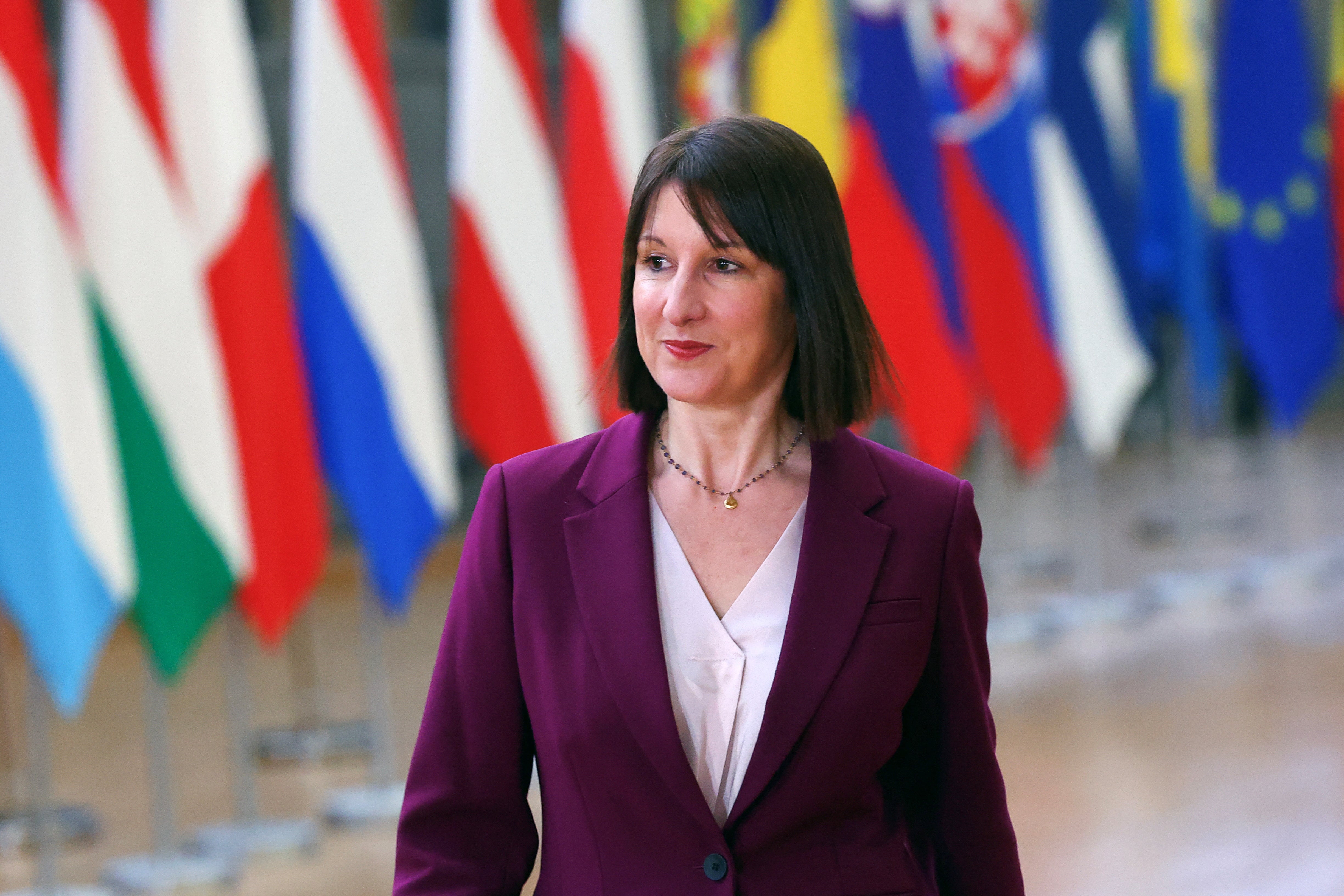Business confidence tumbles to two-year low following Reeves’s raid on employers
Bosses expect orders to fall, costs to rise and consumer confidence to be hit

Your support helps us to tell the story
From reproductive rights to climate change to Big Tech, The Independent is on the ground when the story is developing. Whether it's investigating the financials of Elon Musk's pro-Trump PAC or producing our latest documentary, 'The A Word', which shines a light on the American women fighting for reproductive rights, we know how important it is to parse out the facts from the messaging.
At such a critical moment in US history, we need reporters on the ground. Your donation allows us to keep sending journalists to speak to both sides of the story.
The Independent is trusted by Americans across the entire political spectrum. And unlike many other quality news outlets, we choose not to lock Americans out of our reporting and analysis with paywalls. We believe quality journalism should be available to everyone, paid for by those who can afford it.
Your support makes all the difference.Confidence among business leaders has tumbled to a two-year low following Rachel Reeves’s autumn Budget, where she told employers to cough up billions of pounds more in national insurance payments.
The latest business trends report by accounting firm BDO said it also saw the biggest month-on-month fall in sentiment among businesses since 2021, following the Budget.
Bosses expect orders to fall, costs to rise and consumer confidence to be hit. The BDO optimism index fell 5.81 points to 93.49 this month – the lowest since January 2023.
Ms Reeves took aim at employers in her first Budget, hitting them with higher taxes and raising the minimum wage.
Businesses face a 1.2 percentage point increase in employers’ national insurance, to 15 per cent, in a bid to raise £25bn. Ms Reeves also lowered the threshold on which the tax is paid.
“I know this is a difficult choice,” she said as she unveiled the Budget last month, adding: “I do not take this decision lightly.”
The gloomy numbers come as discount supermarket Iceland’s boss urged business owners to stop “wallowing” and “complaining” following the Budget. He conceded that the Treasury’s position was “tough” but that businesses need to adapt.
He told the Daily Telegraph: “There’s been a lot of complaining from business. But, actually what matters much more is how the Government invests for the future and looks at long-term solutions, like skills development, industrial strategy, the business rates overhaul. How they spend all the money they are raising is more important.”
But the effects of the increase in costs is already being seen. Domino’s Pizza Group said it faces £3m a year in increased costs because of Ms Reeves’s choices.
“As with other major employers in the UK, the recent UK budget has significantly increased the cost of labour for both Domino’s Pizza and our franchise partners, who are particularly impacted,” the company said in a statement to the London Stock Exchange.
In a separate report, KPMG said businesses are cooling down on hiring as they count the cost of tax rises.
The report, which was also penned by the Recruitment & Employment Federation, said demand for staff fell at the fastest pace since the Covid lockdowns. The low rate of hiring also kept a cap on pay, it said.
Jon Holt, Group Chief Executive and UK Senior Partner KPMG, said: “Businesses are having to weigh up the prospect of increasing employee costs following the Budget, which has led to an accelerated slowdown in hiring activity across the board.
“While the data was already heading in that direction, permanent placements saw their steepest reductions in over a year last month, and temporary roles also saw a fifth consecutive decline.”
Economist Julian Jessop said: “Hopefully, this will just be a temporary pause: employer confidence could recover as slower wage inflation encourages the Bank of England to keep cutting interest rates, and as the public spending increases in the Budget start to lift growth.
“But this is all highly uncertain, and it’s looking pretty grim for now.”
Kaley Crossthwaite, partner at BDO, said: “December marks the end of a tough couple of years for businesses and the drop in business confidence this month is not a surprise given the significant challenges they continue to face.
“While it’s encouraging to see businesses planning ahead already and finding efficiencies to manage rising costs, meaningful growth in 2025 will only happen with targeted support from the Government.
“Policies that address the continued effects of inflation and pricing challenges are vital.
“Resilience remains a defining feature of UK mid-market businesses, and with the right support they are well positioned to weather these challenges, create jobs and drive growth.”
Join our commenting forum
Join thought-provoking conversations, follow other Independent readers and see their replies
Comments